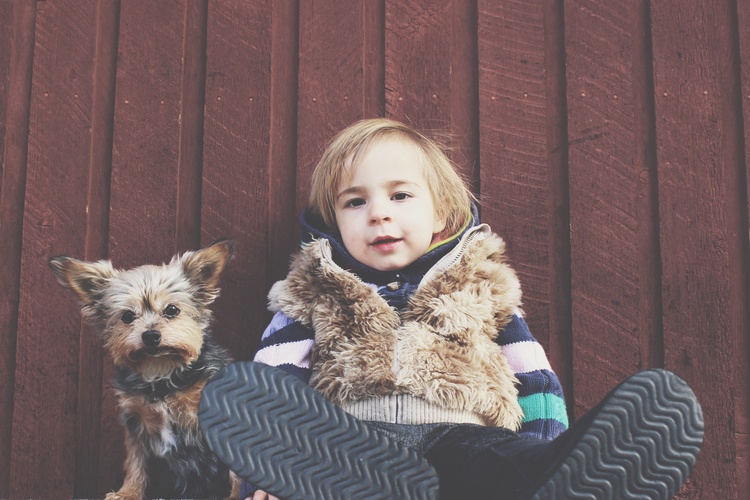At one time or another, many parents will have faced their children and their heart-felt pleas for a pet. Complete with earnest promises that the pet will be THEIR responsibility and puppy-dog eyes of their own directed your way, it can be a pretty hard request to turn down.
Fortunately, caving in on co-parenting both little person and pet actually comes with a whole host of benefits. From greater cognitive development and empathy to improved relationships, to robust health, teaching your kids to understand their furry family members can be fantastic for their development.
Read on to find out our top three reasons having a pet can be extremely positive for children.
Responsibility
This is an oft-cited reason why pets are good for kids. Yes, it can be easy to doubt a child’s hand-on-heart claim that they alone will care for an animal all their own. But if managed effectively, pet ownership can truly teach children skills of responsibility and accountability.
By designating particular, age-appropriate pet care tasks to your kids, you can show them that the responsibility of caring for an animal must be prioritised in their day to day lives. For many children, this is going to be their first experience with care-taking.
Understanding that something/someone is dependent on them develops a sense of accountability. And when these tasks are committed to and completed, it builds confidence and self-esteem. This can have wide-reaching influence across many aspects of a young person’s educational, extracurricular and social life.
Friendship
Pets are proven to increase a child’s sense of empathy and connection. Your children can learn how to read non-verbal cues and behaviours. This helps them understand that while animals may communicate themselves differently, their emotions are valid. By instructing your kids on how to behave around animals and the appropriate ways to touch and interact with them, they grow their capacity for compassion, gentle play and respect.
Beyond this, pets are simply the perfect companions for young kids, with many children confiding in their pets. The notion of a non-judgemental play-mate creates a really safe and supportive space where children can enjoy genuine friendship. Having a pet reduces feelings of loneliness significantly. This has tangible effects on a young person’s sense of self, social relationships and mental health.
Health
Having to take care of the needs of an animal naturally promotes a healthy lifestyle. By teaching children about the need to exercise their pets regularly, you can encourage them to be proactive about their own health. Build a routine around taking your dog to the park for a walk and enjoy screen-free time outdoors as a family.
A pet also strengthens a child’s immune system. Frequent exposure to animals results in lower incidences of allergies and asthma. It also provides a natural stress and anxiety relief. Even just the act of cuddling your pet will lower your child’s heart-rate and promote feelings of calm and comfort.

